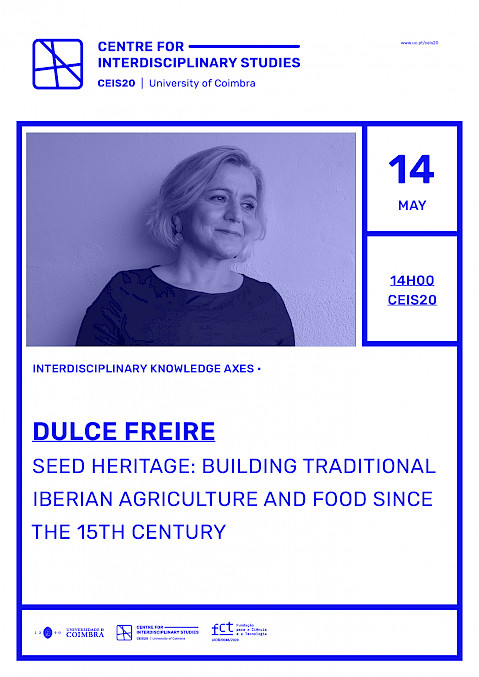Proferida em inglês, a conferência dos Eixos do Conhecimento Interdisciplinar Seed heritage: building traditional Iberian agriculture and food since the 15th century por Dulce Freire decorrerá dia 14 de maio na Sala de Seminários do CEIS20.
"Since the 15th century, intercontinental connections have encouraged the circulation ofcultivated seeds. The Iberian Peninsula became a privileged gateway to Europe for many newseeds from Asia, Africa and, above all, the Americas. By the end of the 16th century, rice,maize, sweet potatoes, potatoes, tomatoes, sweet oranges, pumpkins, beans and peppers hadbecome part of the Iberian landscape and cuisine. In many cases, these seeds, initiallyconsidered exotic, had become local seeds, linked to the tangible and intangible heritage thatunderpins communities. By identifying the space-time trajectory of each cultivated speciesacross the Iberian Peninsula, the ReSEED project is building a new methodological approach toexplain the economic, social and environmental European impact of these seeds. This sessionis an opportunity to present the itinerary for building an interdisciplinary methodology and todiscuss some of the preliminary results."
Dulce Freire

Dulce Freire | University of Coimbra, Center for Interdisciplinary Studies, Faculty of Economics
Dulce Freire is Assistant Professor at the Faculty of Economics, University of Coimbra. She holds a degree in History and a Ph.D in Economic and Social History (2008) from FCSH-NOVA. She is the Principal Investigator of ReSEED - Rescuing seed's heritage, a research project funded by the European Research Council, and a researcher at the Center for Interdisciplinary Studies of the University of Coimbra. Her research interests include rural, agrarian and food history of the Iberian Peninsula. She has published over 150 articles or book chapters, and several books. In recent years, she has coordinated several research projects on changes in agriculture, food, society, economy, and public policy since the 18th century, bringing together researchers and students from different scientific backgrounds, such as history, anthropology, sociology, geography, architecture, and biology.

